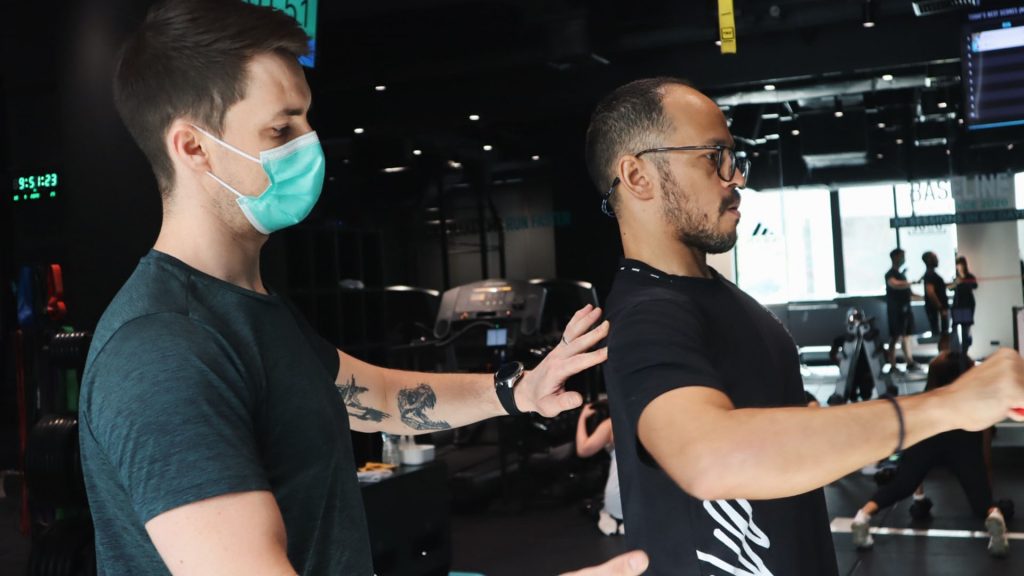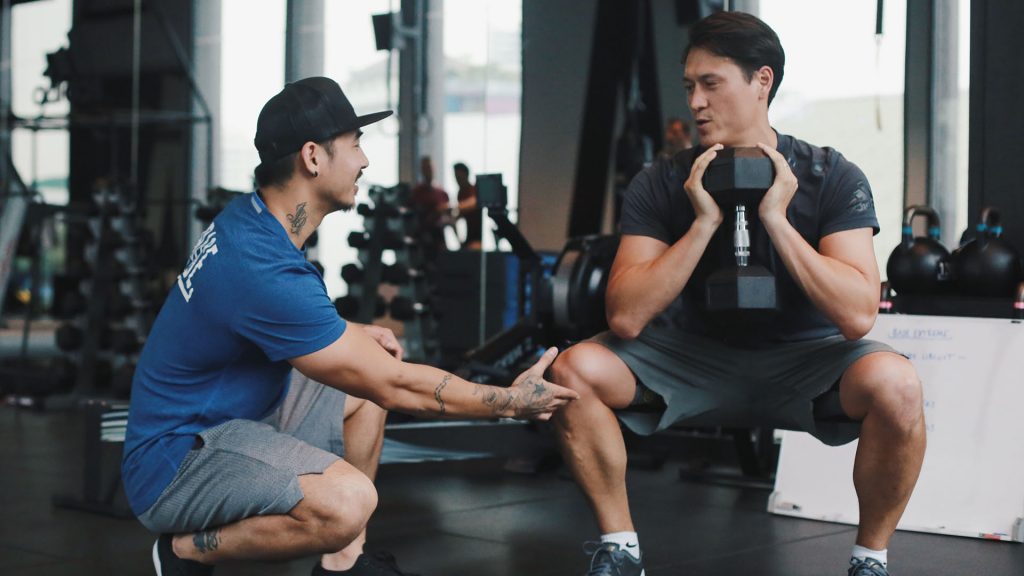Hiring a Fitness Professional: Cheerleader vs Trainer vs Coach
By Jeff Smith, BASE Fitness Manager
When it comes to hiring and training with a fitness professional it’s easy to assume that there isn’t much difference when choosing one over the other. In reality, there can be huge differences in what you get.
Whether you are doing group classes or personal training, most professionals will fall into one of three categories: coach, trainer, or cheerleader. Making sure you can tell the difference is key to long-term success.
There are pros and cons to each of these and in this article I will list out what is good and not so good about each. By understanding more about the differences you will be better equipment to make a smart decision when it comes to spending your money and achieving your goals.

The Cheerleader
This term is used loosely to describe a fitness professional that focuses more on pushing and cheering on their clients rather than emphasizing correct form and technique, or if the exercises are right for the client and their goals.
Cheerleaders are fairly abundant in the fitness industry, especially in group classes. These coaches of course have good intentions for their clients but with limited experience, training, and resources they are typically unable to provide more in depth guidance a trainer or coach would.
For some clients this is perfectly adequate. If you are more self-sufficient and are just interested in getting your sweat on, then cheerleaders are a perfectly acceptable option. While this isn’t always 100% the case, the classes and clients they instruct can typically be found in large chain gyms or franchises.
Pros of a Cheerleader:
- Great at motivating clients
- Can really get the energy up in a room
- Are usually at the lower end of the market
Cons of a Cheerleader:
- Can miss important details when training clients
- Programming is sometimes overly complex and misses the fundamentals
- Long-term adherence and progression is not always achieved
- Slightly higher chance of injury when form is not strong or too much weight is lifted
The Trainer
When most people think of a fitness professional this is what typically comes to mind. Trainers have some experience training clients and are good when it comes to taking clients and members through a workout.
Most Trainers tend to miss the overall details when it comes to the clients specific situation. They will oftentimes use a cookie cutter approach – a ‘one size fits all’ program – when it comes to training clients and they usually do not provide much support outside of training sessions, other than a few rough guidelines for clients to follow.
You’ll see trainers commonly at many different types of fitness centres and gyms and since they are usually training many clients per day, very little effort goes into training clients for their specific goals but they are therefore able to offer lower cost training.
Pros of a Trainer:
- Sometimes a lower cost to train with
- Has adequate knowledge when it comes to programming
- Can be easy to book in with
- Great if you’re just looking for a workout or to ‘get a sweat’
Cons of a Trainer:
- Difficulty training clients for specific goals
- May lack interest or motivation working many hours
The Coach
For a fitness professional to classify themselves as a coach is not as easy as earning a training certificate and taking on clients. A coach will have several attributes that separates them from other fitness professionals.
Firstly, a coach will differentiate themselves by obtaining a deeper understanding of what the client is going through and what they want to achieve. While this is easier to do with personal training, a good coach can accomplish this with group classes as well.
Understanding the client, what motivates them, and their objectives is key to being able to help their client in the most efficient and effective way possible. This isn’t done in a single meeting with their client. A coach will maintain open communication with the client and get regular feedback on their progression and how the client is feeling.
A client’s goals will likely change as they go through their fitness journey. A good coach will understand this. Open communication between coach and client helps to build trust and further strengthen the relationship. A strong relationship and trust is very important when it comes to the client seeing results and achieving their goals.
Coaches will also have a specific niche or clientele they prefer to train with. By having a specific client to work with they will be better able to train that specific client. They will essentially become an expert in that particular field. This is also key to getting results the most efficient and effective way possible. When looking for a coach it’s a good idea to see if they have testimonials from clients looking to achieve the same thing you would like.
Coaches also understand the importance of helping the client beyond just their training sessions. Some important aspects a coach will help a client with include but are not limited to nutrition, sleep, recovery, and stress management. A coach understands that only helping a client two to three hours per week is not enough to really help them achieve their goals.
Finally, coaches are also good teachers. They can effectively communicate why certain things are done the way they are and why it’s important. They understand the intricate details of an exercise and can teach their clients why it’s important and how it carries over into what they are trying to accomplish. They are masters at explaining things simply so the client can understand. While not all clients are interested in learning the finer details of an exercise a coach knows just the right amount the client needs to know to help them.
Pros of a Coach
- They understand the client and their goals
- Can effectively help the client achieve their goals
- Give clients assistance outside of just the coaching sessions
- Effective at explaining the ‘why’
- High accountability
Cons of a Coach
- Finding true coaches can be difficult.
- Scheduling with coaches can often be difficult if they are busy
- Cost of training with an experienced coach will typically be higher than Trainers or Cheerleaders

What we strive for at BASE
Whether it’s group classes or personal training, at BASE we believe in coaching our clients to their fullest potential and goals.
Whilst motivation and support is important, we believe that a detailed program tailored to your goals and a deeper look at everything that surrounds getting results is essential.
Our team of fitness coaches seek to understand their client’s goals and offer assistance in other areas such as lifestyle, nutrition and sleep – all essential elements to success.
We believe in educating you and welcome questions on our programming and approach. If we can empower you to do your own training that’s the ultimate success and leads to the greatest results.

How do I work with a BASE Fitness Coach?
Contact the team with some information on your goals and current training regimen and we’ll be happy to find the right coach for you.
Alternatively you can fill out this form for a special offer on our BASE Personal Training Starter Pack.
